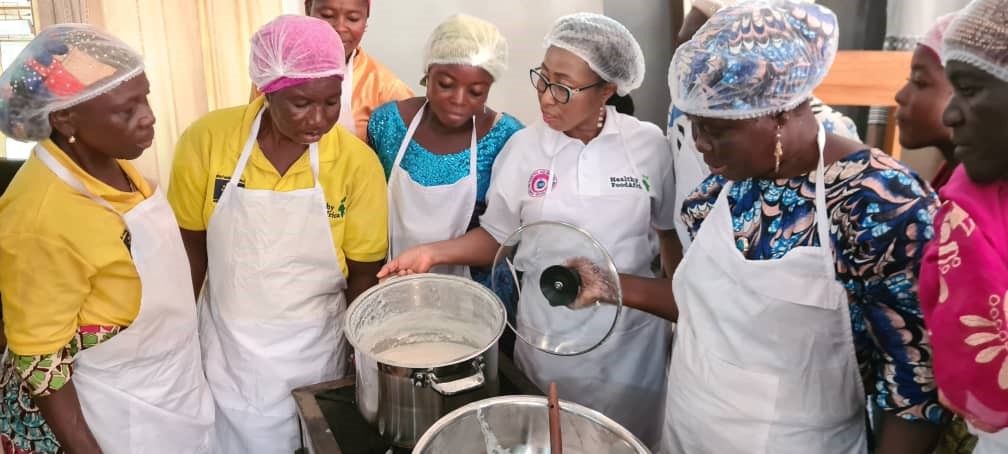The HealthyFoodAfrica project organized a hands-on training in Northern Ghana to empower rural communities to turn soybeans into nutritious, marketable products. By building practical skills and supporting local entrepreneurship, the aim is to promote food security, better nutrition, and sustainable livelihoods.

The Accra Food System Lab (FSL Accra), operated by CSIR, successfully organized a hands-on training session for the Tamale Food System Lab on soy value addition at the Presbyterian Lay Training Centre in Viitin. The goal was to empower rural women and men involved in soybean cultivation by equipping them with practical skills to process soy into value-added products. This initiative also sought to improve food security, nutrition, and economic empowerment in local communities.
The training had three main objectives:
-
To offer practical guidance on processing soybeans into products such as soy milk, soy tofu, maize-soy cereal, and soy pancake mix.
-
To create economic opportunities by enabling participants to produce and sell soy-based products.
-
To promote the nutritional value of soy as a healthy dietary option.
Participants received basic training in good hygienic practices, including handwashing, the use of aprons, and hair covers. Trainers emphasized the importance of maintaining food quality standards and explained the nutritional benefits of soy, encouraging its inclusion in daily meals.
A product development expert guided participants through key soybean processing steps such as cleaning, dehulling, and preparing soy for transformation into various products. They also learned about effective packaging techniques to ensure food safety and extend shelf life. Recognizing the entrepreneurial potential, the training included sessions on business planning, financial management, and identifying markets and customers for soy products.
In addition to improving processing skills, the training addressed sustainable waste management techniques. Many participants expressed motivation to start producing soy products at home for family use, and some were hopeful about launching small-scale commercial ventures, depending on the availability of funding. The hands-on approach and shared insights were highly valued, contributing to the overall success of the training. Participants also received a manual developed by CSIR-Food Research Institute on other value-added soy products.
The Tamale FSL training on soy value addition made a significant impact by promoting food security, nutrition, and economic empowerment in rural communities. By providing practical skills and business knowledge, the initiative has the potential to transform lives and encourage sustainable agricultural practices. With continued support, the impact of such programs can grow, fostering innovation and driving economic development in the food sector.
Authors:
Amy Atter1, Stephen Nketia1, Alice Padi1, Evelyn Serwa Ayeh1, Frank Peget1, Nashiru Mohammed Adam2, Victor Yakubu Atmoning2, Seth Koranteng Agyakwah3
1CSIR- Food Research Institute
2Center for Initiatives on Food Security and Environment (CIFSE)
3CSIR- Water Research Institute